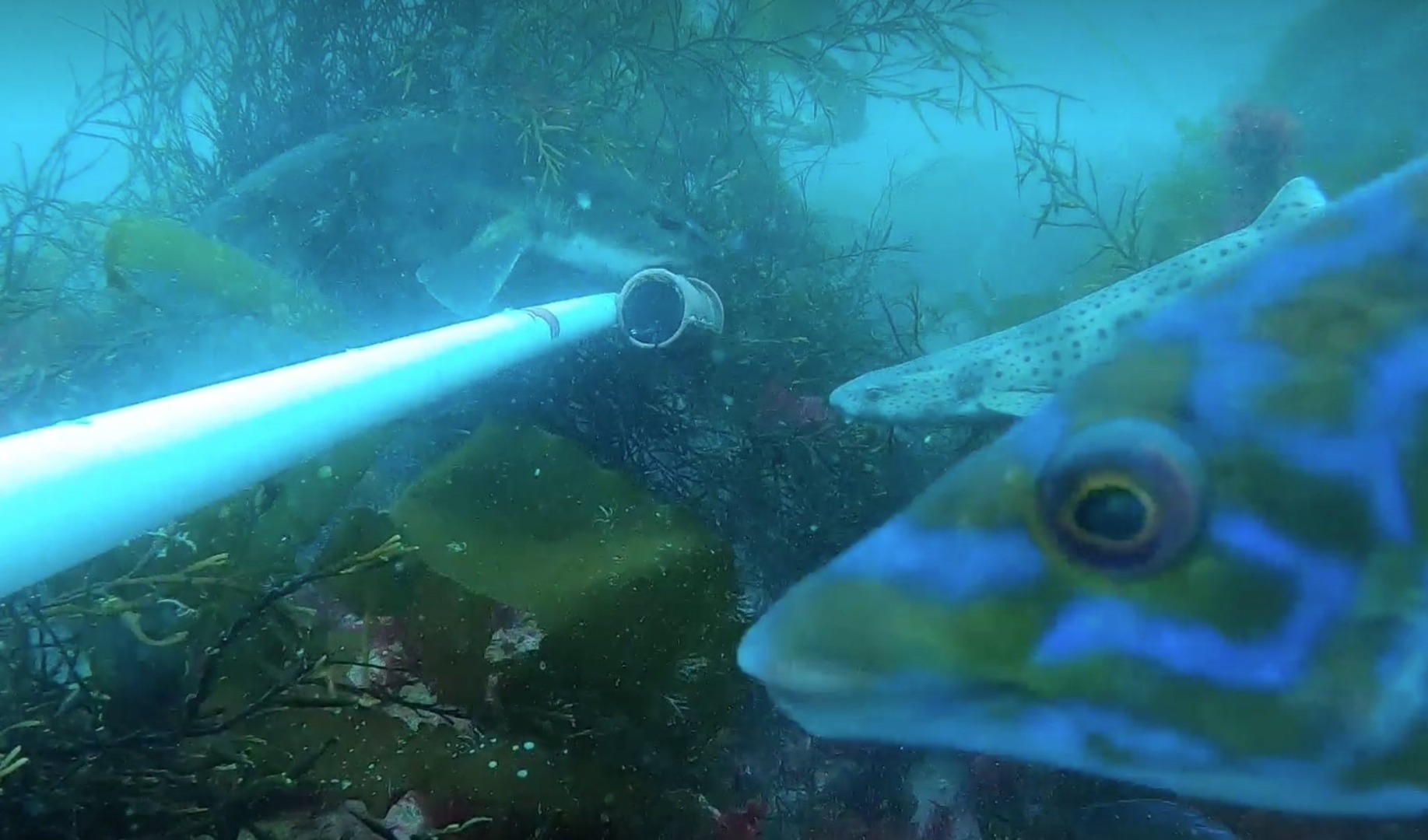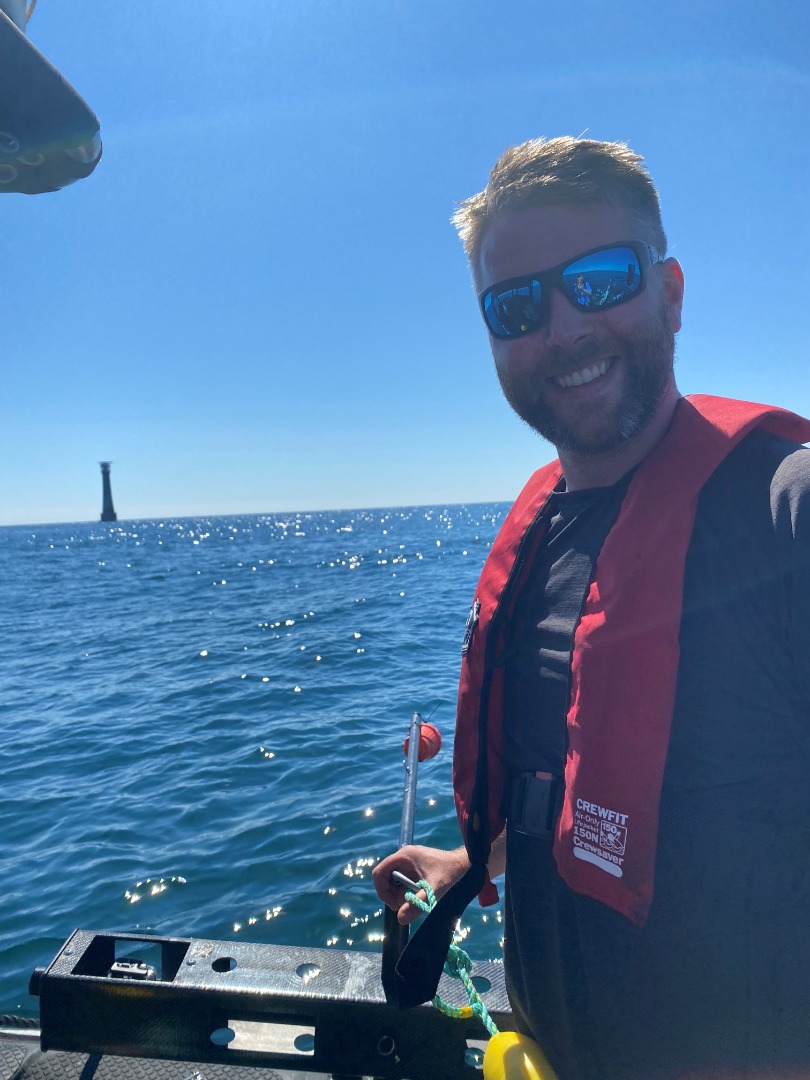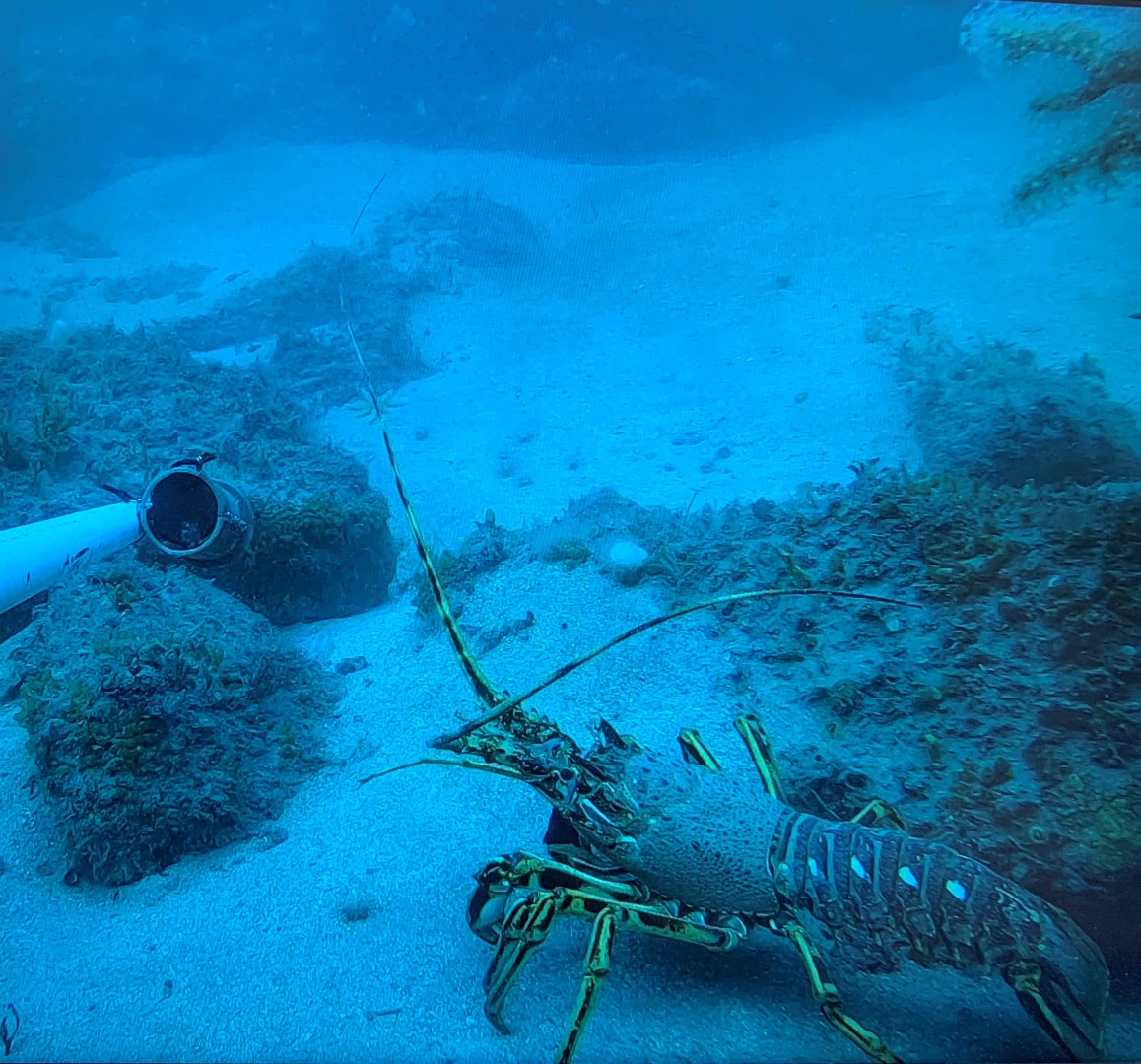Video monitoring |
Assessing the ecological value of, and threats to, marine protected areas in the Isles of Scilly

Isles of Scilly IFCA, in partnership with the University of Exeter, Natural England, Plymouth Marine Lab and NERC GW4+ Doctoral Training Partnership, are supporting a 4 year PhD carried out by Owen Exeter starting in 2022. The PhD aims to assess the ecological value of, and threats to, marine protected areas in the Isles of Scilly and is supervised by Dr. Kristian Metcalfe and Professor Annette Broderick. Research will be carried out largely by using baited remote underwater video systems (BRUVS). The system holds cameras at one end of a bait pole, able to record any individuals which appear to investigate the bait, or which pass the camera by chance. BRUVS are placed on the seabed, or to float in the water column for a set period of time.
The footage is analysed to determine species diversity, abundance and for some species sex ratio within 200m radius of the deployment site. They are stereo BRUVS which means they are able to measure the length of individuals seen on the cameras, enabling Owen to determine the size of individuals, giving an indication of age.
These systems are made from carbon fibre and are therefore light weight and strong, able to be placed even in the rough, tidal areas of the Western Rocks. They can also be adapted to float, becoming pelagic BRUVS to understand the more mobile species seen around the Isles of Scilly.
These metrics are important to form baseline data of current abundance and diversity measurements for species in the Isles of Scilly. BRUVS deployments can then be repeated at the same site each year, enabling us to monitor the baseline data and detect if abundance or diversity is changing. This simple but powerful data will enable IoS IFCA to ensure our ecosystem remains healthy and our stock sustainable, enabling IFCA to act to protect species if we detect declines.



So far, we have seen a wide range of over 30 species in different habitats and areas around the archipelago. This data can be used by IFCA to understand areas of importance such as nursery habitats, refuges or upwellings which may be important for the life cycle of our marine species. Owen’s research will also look into human factors which may cause a difference in species abundance and diversity, such as cumulative vessel pressure. The more we understand about how our ecosystem functions, the easier it becomes to place effective management measures which safeguard our key economic species and ecosystem.
|